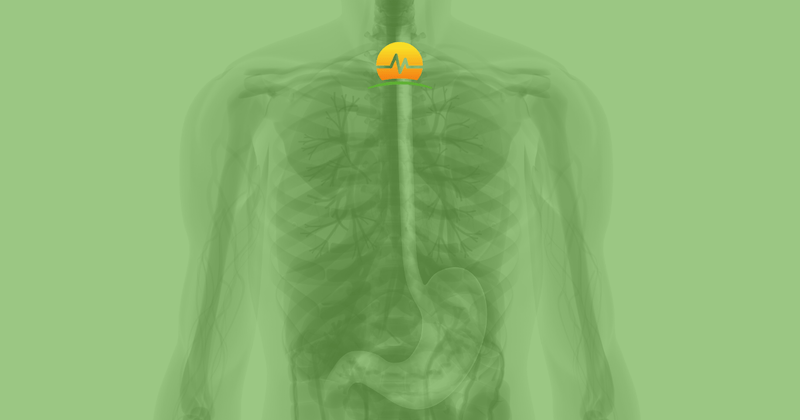Gastroesophageal reflux disease, more commonly known by its abbreviation GERD, is an all too common condition. Caused by dysfunction of the Lower Esophageal Sphincter (LES), which controls flow into the top of the stomach from the esophagus, chronic acid reflux can lead to frequent discomfort and long-term damage to the upper GI system. GERD can be difficult to manage with several contributing factors like diet, weight, age, and lifestyle.
Patients often start with lifestyle modifications and oral medication like antacids and Proton Pump Inhibitors (PPIs). These, however, do not treat the dysfunction, only attempt to mitigate the symptoms of the LES failure. Further long-term PPI use may be problematic Surgical treatment is the only true corrective option for GERD. Please read below as we discuss the differences and benefits of the two reflux surgery options.
Reflux Surgery
The surgical team at MASJax in Jacksonville, Florida, offers two distinct types of surgical GERD treatment. As mentioned above, the root cause of GERD is a failure of the Lower Esophageal Sphincter or LES. The LES is intended to allow food to pass from the esophagus to the stomach after swallowing it. A failed LES incorrectly allows stomach contents, including harmful stomach acid, to flow back upward into the esophagus. While we don’t always know why this failure occurs, both surgical treatments we offer correct this weakness to prevent backflow or reflux of stomach contents.
The LINX Device
The LINX Reflux Management System device offers a new advancement in GERD treatment. The LINX device looks similar to a bracelet and is only about the diameter of a quarter. It is made from tiny, surgically safe titanium beads and a magnetic clasp. During surgery, the device is positioned around the LES.
With the magnetic clasp closed, the device adds pressure to aid the LES in finding a closed position after food flows down into the stomach. Nearly 90% of patients who choose the LINX Reflux Management System for treatment report their severe reflux symptoms have been eliminated. LINX may not be appropriate for patients with a large hiatal hernia before surgery.
Partial or Full Fundoplication
Fundoplication has been the gold standard in surgical reflux treatment for decades. It is well known and is generally a good surgical option with excellent relief for patients suffering from severe GERD symptoms. During a fundoplication, tissue from the upper portion of the stomach, known as the fundus, is wrapped around the LES and sutured to add support and pressure, helping the LES more effectively do its job and prevent reflux from the stomach to the esophagus. If a hiatal hernia is present, a common occurrence, it will also typically be repaired during the same surgery.
To offer a more tailored approach to patient needs, variations of this procedure have been developed. The original Nissen Fundoplication indicates a full 360° wrap, Toupet a 270° wrap, and Dor 180-200° around the base of the esophagus. This variable approach is intended to decrease the limitations and risks associated with the traditional complete Nissen Fundoplication surgery for GERD.
LINX vs. Fundoplication Surgery & DownTime
Typical fundoplication surgery is performed laparoscopically in about 45-to-60 minutes under general anesthesia in a hospital setting, and you will stay overnight. LINX placement is a relatively quick surgical procedure, lasting only about 15-to-20 minutes, meaning less time the patient will be under anesthesia. LINX is minimally invasive and is performed laparoscopically in an outpatient surgery, meaning patients go home to recover on the same day as surgery.
Unlike with the LINX, fundoplication patients must follow a post-op diet for several weeks after surgery to allow the stomach time to heal. In terms of recovery and aftercare following the LINX placement, patients are often surprised with how quickly they can return to regular activity. Moreover, the LINX surgery does not require that patients follow a modified post-op diet. Unlike fundoplication, the stomach does not require a modified diet to allow for healing.
LINX vs. Fundoplication Potential Complications
Both the LINX and Fundoplication are performed laparoscopically using special instruments and small incisions in the abdomen, meaning both surgeries have standard surgical risks. Your surgeon will discuss the risks of surgery during a GERD consultation. Complications specific to fundoplication include a break in the suture line. If this occurs, the stomach returns to its standard shape, and GERD symptoms are likely to return.
Another disadvantage of fundoplication is gas bloat syndrome. Gas bloat occurs when air swallowed while eating and drinking becomes trapped in the GI system. The added pressure from the fundoplication wrap makes it challenging to expel these gases through burping. LINX patients can more easily belch or vomit when needed and with less pain than is often reported following a fundoplication procedure. And there is a significantly decreased risk of gas bloat syndrome.
Interestingly if the LINX device needs to be removed, it does not necessarily mean relief is lost. Scar tissue around the LES, caused by the implantation of the device, continues to provide pressure that blocks acid reflux.
How to Decide Between Fundoplication and LINX Reflux Management System?
Your surgeon will discuss the risks and benefits of your reflux surgery options and develop a care plan that best fits your needs. We recommend that you have your reflux evaluated and consider your treatment options. The best treatment for you will be unique to your needs, goals, and lifestyle.
Unmanaged acid reflux can damage the esophagus, throat, and teeth. Because of the high level of acid in the stomach’s gastric juices, reflux causes damage to the lining of the esophagus. This can result in cellular changes, and potentially a condition called Barrett’s Esophagus can develop where the esophagus becomes more like an intestine to handle the frequent bath of acid. Barrett’s Esophagus has been linked to a higher risk of esophageal cancer. However, this is rare. The longer you suffer from GERD, the more likely complications will occur, so early evaluation and management are critical.
To learn more about surgical GERD treatment at MASJax, we invite you to schedule a consultation with one of our experienced minimally invasive surgeons.






